Rabbinic Quotes & Sayings
Enjoy reading and share 17 famous quotes about Rabbinic with everyone.
Top Rabbinic Quotes
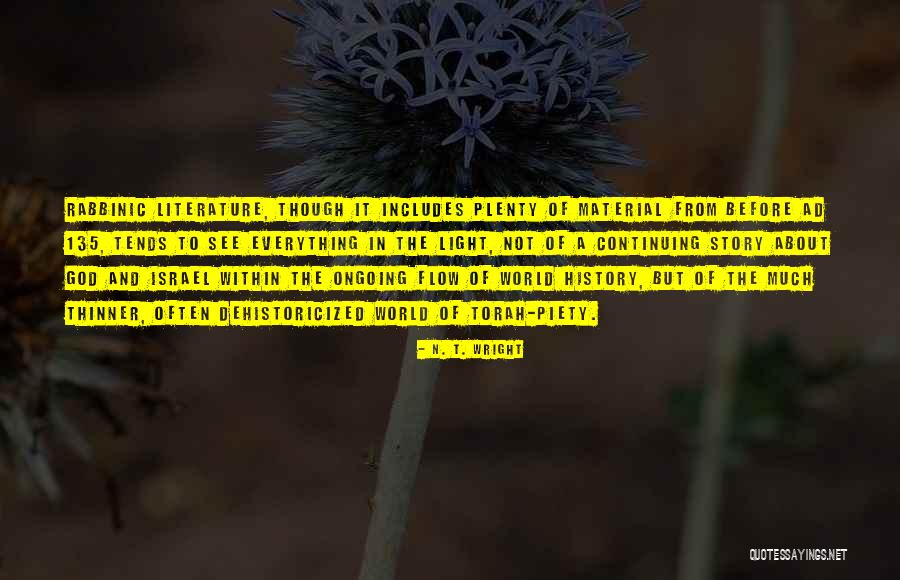
Rabbinic literature, though it includes plenty of material from before AD 135, tends to see everything in the light, not of a continuing story about God and Israel within the ongoing flow of world history, but of the much thinner, often dehistoricized world of Torah-piety. — N. T. Wright

Judaism is not, and never has been, a single stream of thought, but a river formed of many, often contradictory, streams, and rabbinic texts are composites of different kinds of thinking. — Howard Schwartz
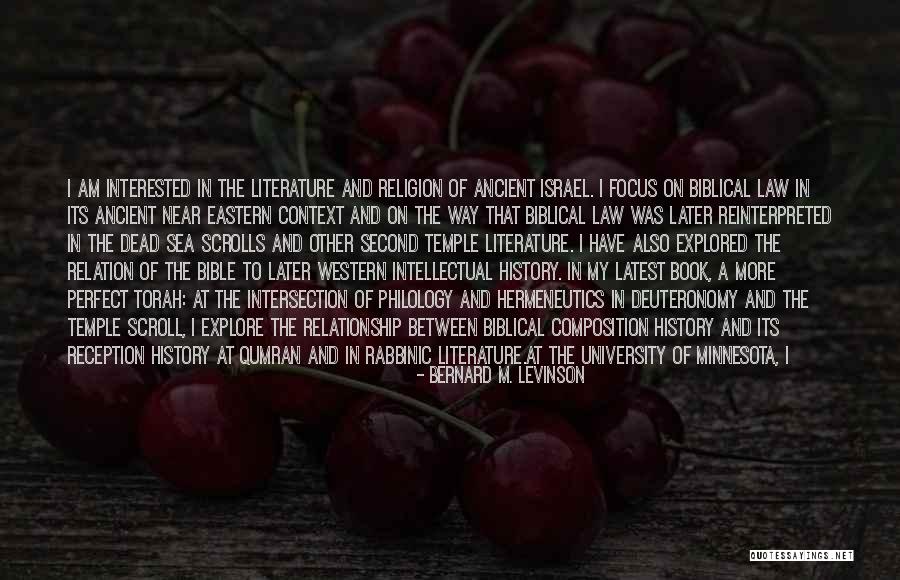
I am interested in the literature and religion of ancient Israel. I focus on biblical law in its ancient Near Eastern context and on the way that biblical law was later reinterpreted in the Dead Sea Scrolls and other Second Temple literature. I have also explored the relation of the Bible to later western intellectual history. In my latest book, A More Perfect Torah: At the Intersection of Philology and Hermeneutics in Deuteronomy and the Temple Scroll, I explore the relationship between biblical composition history and its reception history at Qumran and in rabbinic literature.
At the University of Minnesota, I have department affiliations with the Center for Jewish Studies and the Program in Religious Studies and am also an affiliated faculty member of the Law School. — Bernard M. Levinson
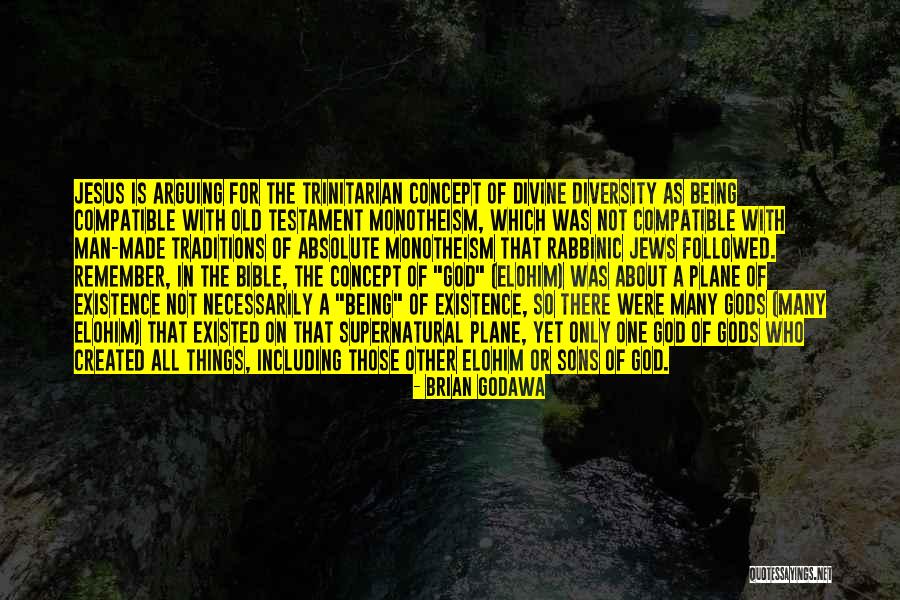
Jesus is arguing for the Trinitarian concept of divine diversity as being compatible with Old Testament monotheism, which was not compatible with man-made traditions of absolute monotheism that Rabbinic Jews followed. Remember, in the Bible, the concept of "god" (elohim) was about a plane of existence not necessarily a "being" of existence, so there were many gods (many elohim) that existed on that supernatural plane, yet only one God of gods who created all things, including those other elohim or sons of God. — Brian Godawa
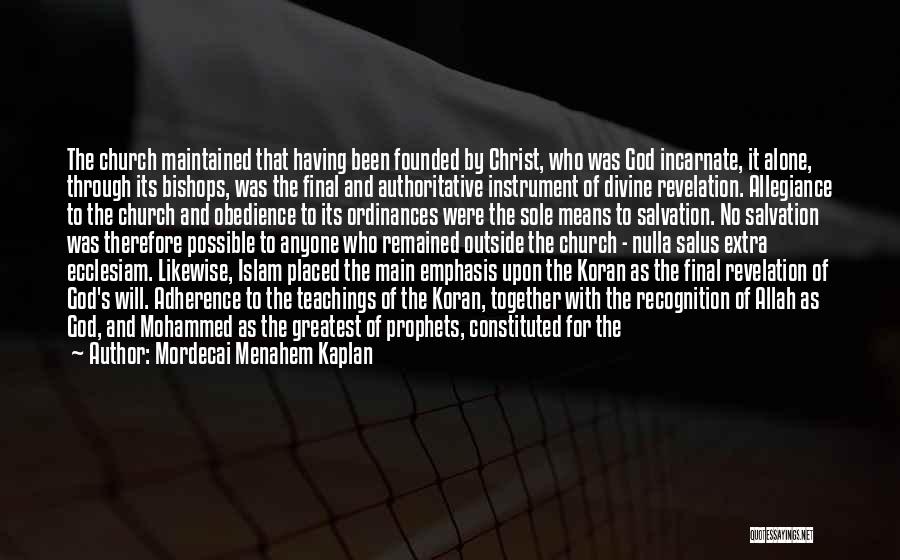
The church maintained that having been founded by Christ, who was God incarnate, it alone, through its bishops, was the final and authoritative instrument of divine revelation. Allegiance to the church and obedience to its ordinances were the sole means to salvation. No salvation was therefore possible to anyone who remained outside the church - nulla salus extra ecclesiam. Likewise, Islam placed the main emphasis upon the Koran as the final revelation of God's will. Adherence to the teachings of the Koran, together with the recognition of Allah as God, and Mohammed as the greatest of prophets, constituted for the Moslems the sine qua non of salvation.
The Jews were not quite as emphatic as were the Christians and the Moslems in declaring the rest of mankind ineligible to salvation. Rabbinic teaching was inclined to concede that Gentiles, who were righteous or saintly, had a share in the world to come. — Mordecai Menahem Kaplan
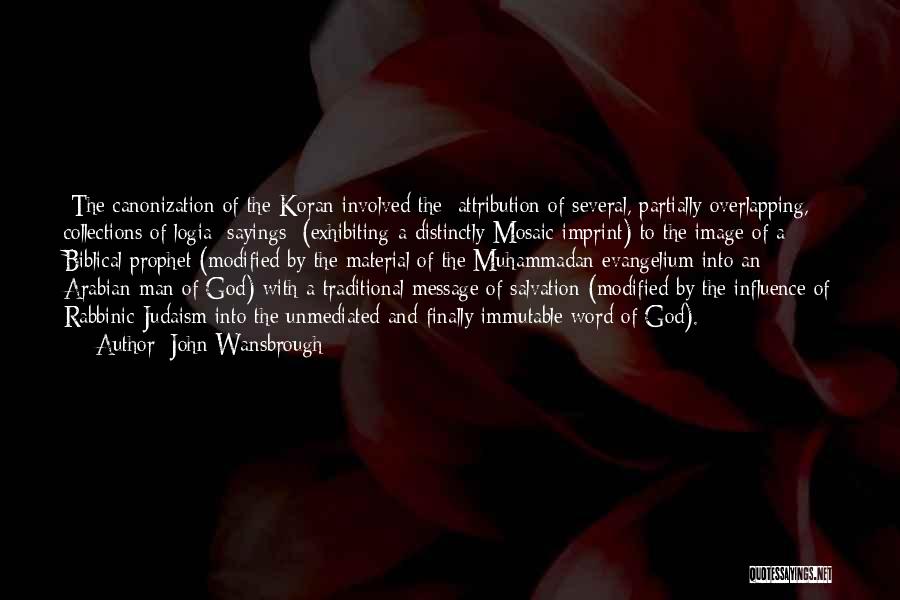
[The canonization of the Koran involved the] attribution of several, partially overlapping, collections of logia [sayings] (exhibiting a distinctly Mosaic imprint) to the image of a Biblical prophet (modified by the material of the Muhammadan evangelium into an Arabian man of God) with a traditional message of salvation (modified by the influence of Rabbinic Judaism into the unmediated and finally immutable word of God). — John Wansbrough
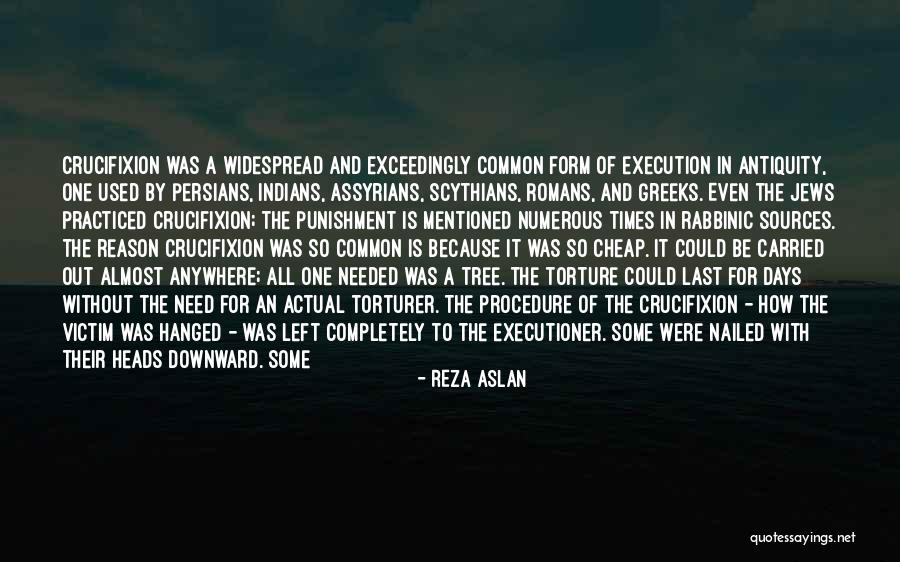
Crucifixion was a widespread and exceedingly common form of execution in antiquity, one used by Persians, Indians, Assyrians, Scythians, Romans, and Greeks. Even the Jews practiced crucifixion; the punishment is mentioned numerous times in rabbinic sources. The reason crucifixion was so common is because it was so cheap. It could be carried out almost anywhere; all one needed was a tree. The torture could last for days without the need for an actual torturer. The procedure of the crucifixion - how the victim was hanged - was left completely to the executioner. Some were nailed with their heads downward. Some had their private parts impaled. Some were hooded. Most were stripped naked. It was Rome that conventionalized crucifixion as a form of state punishment, creating a sense of uniformity in the process, particularly when it came to the nailing of the hands and feet to a crossbeam. — Reza Aslan
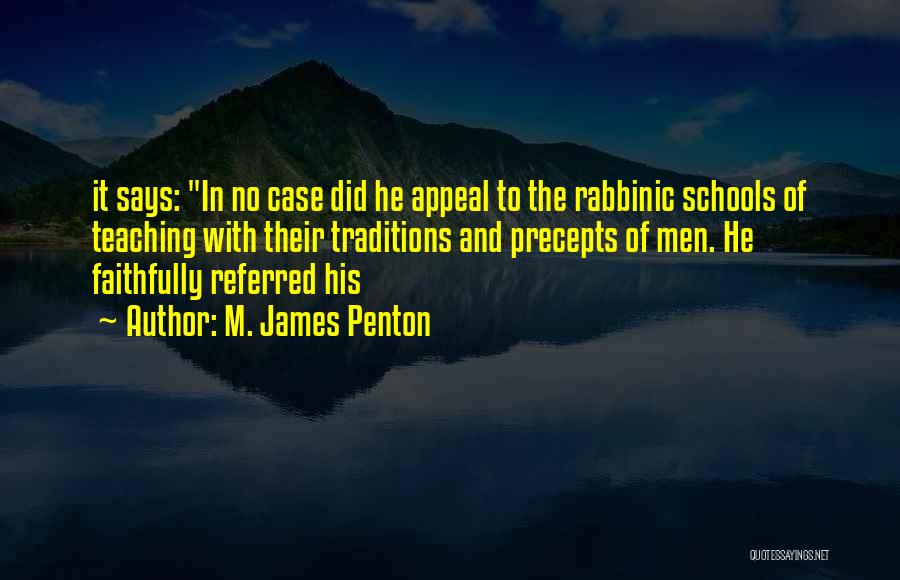
it says: "In no case did he appeal to the rabbinic schools of teaching with their traditions and precepts of men. He faithfully referred his — M. James Penton
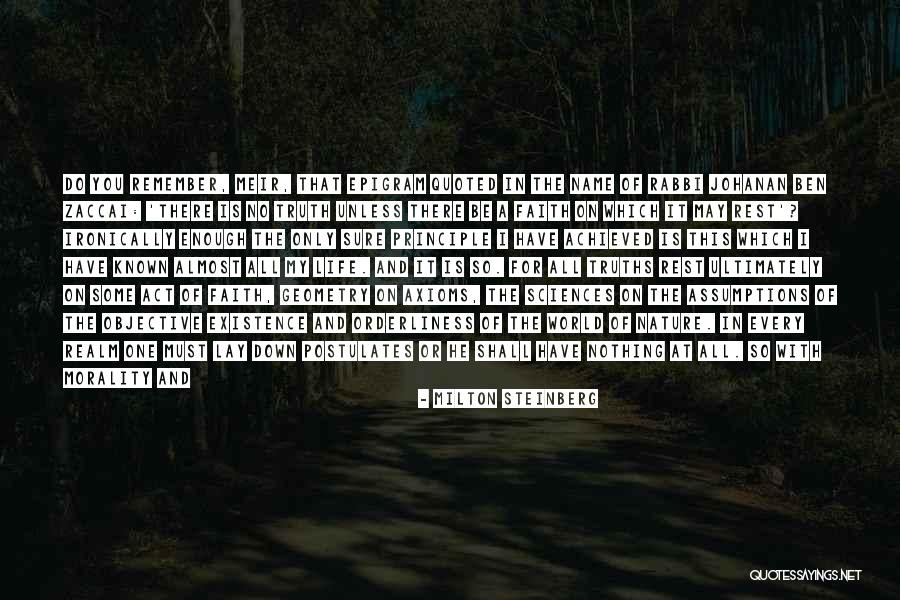
Do you remember, Meir, that epigram quoted in the name of Rabbi Johanan ben Zaccai: 'There is no truth unless there be a faith on which it may rest'? Ironically enough the only sure principle I have achieved is this which I have known almost all my life. And it is so. For all truths rest ultimately on some act of faith, geometry on axioms, the sciences on the assumptions of the objective existence and orderliness of the world of nature. In every realm one must lay down postulates or he shall have nothing at all. So with morality and religion. Faith and reason are not antagonists. On the contrary, salvation is through the commingling of the two, the former to establish first premises, the latter to purify them of confusion and to draw the fullness of their implications. It is not certainty which one acquires so, only plausibility, but that is the best we can hope for. — Milton Steinberg

Jews seek to cleave to the will of God as set forth in the Bible and, particularly, the Pentateuch, with its rabbinic commentaries, the Mishnah and Talmud. — Meir Soloveichik
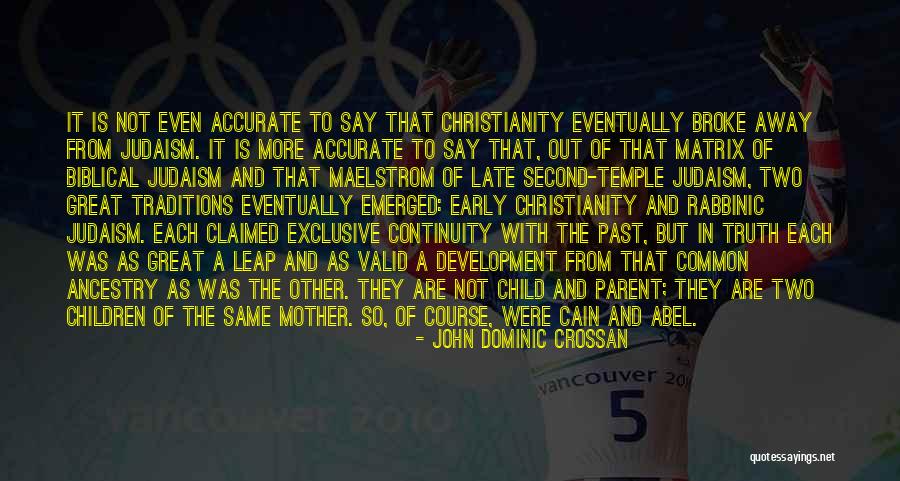
It is not even accurate to say that Christianity eventually broke away from Judaism. It is more accurate to say that, out of that matrix of biblical Judaism and that maelstrom of late Second-Temple Judaism, two great traditions eventually emerged: early Christianity and rabbinic Judaism. Each claimed exclusive continuity with the past, but in truth each was as great a leap and as valid a development from that common ancestry as was the other. They are not child and parent; they are two children of the same mother. So, of course, were Cain and Abel. — John Dominic Crossan
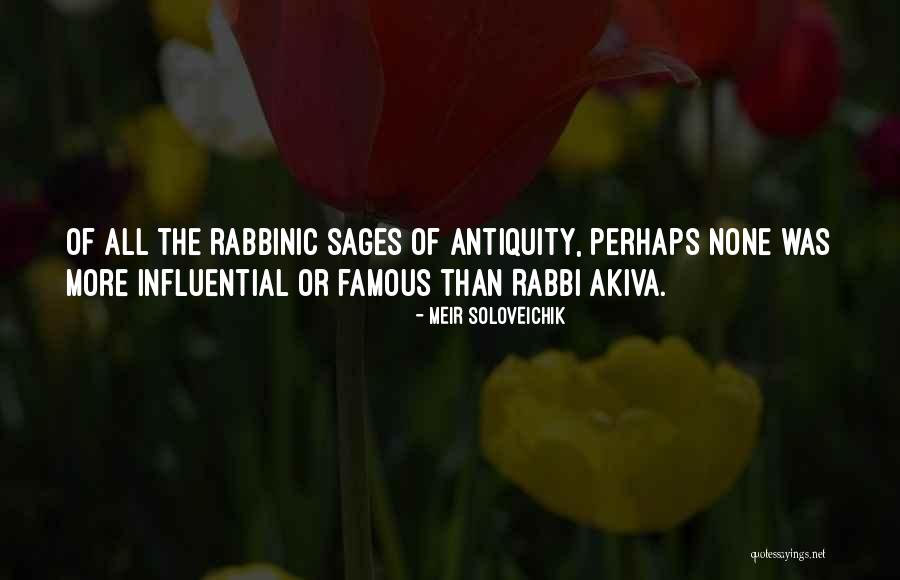
Of all the rabbinic sages of antiquity, perhaps none was more influential or famous than Rabbi Akiva. — Meir Soloveichik

This is the picture of a woman cast in the role of a learner, a pupil, even a rabbinic student. Quite obviously this is a prohibited role for women in those days and in that culture. Yet Jesus affirms Mary in that role. Martha, however, rebukes her. Martha demands that Jesus order Mary to abandon the pupil role for the more acceptable domestic role of assisting with the dinner preparations. Jesus supports Mary and defends her consciousness-raising act by stating that she has elected a higher choice. — John Shelby Spong
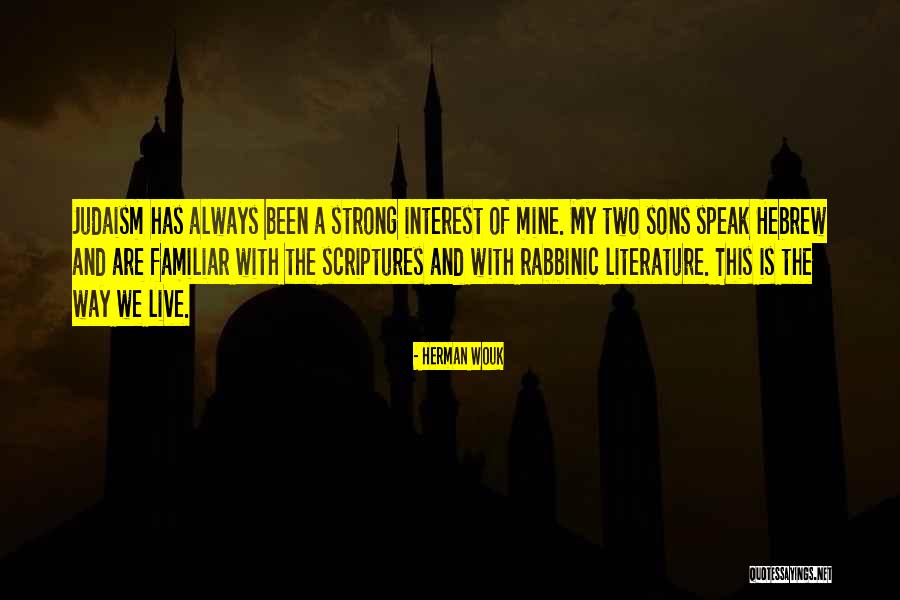
Judaism has always been a strong interest of mine. My two sons speak Hebrew and are familiar with the scriptures and with rabbinic literature. This is the way we live. — Herman Wouk
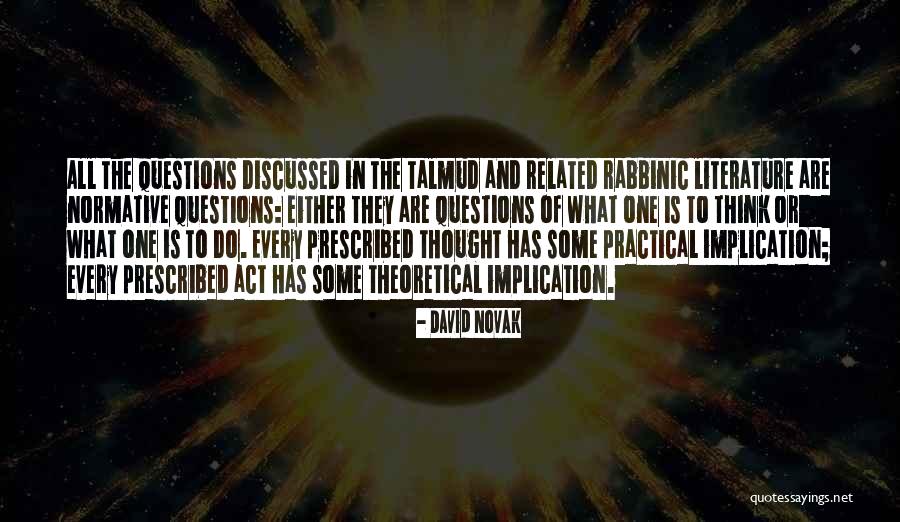
All the questions discussed in the Talmud and related rabbinic literature are normative questions: either they are questions of what one is to think or what one is to do. Every prescribed thought has some practical implication; every prescribed act has some theoretical implication. — David Novak
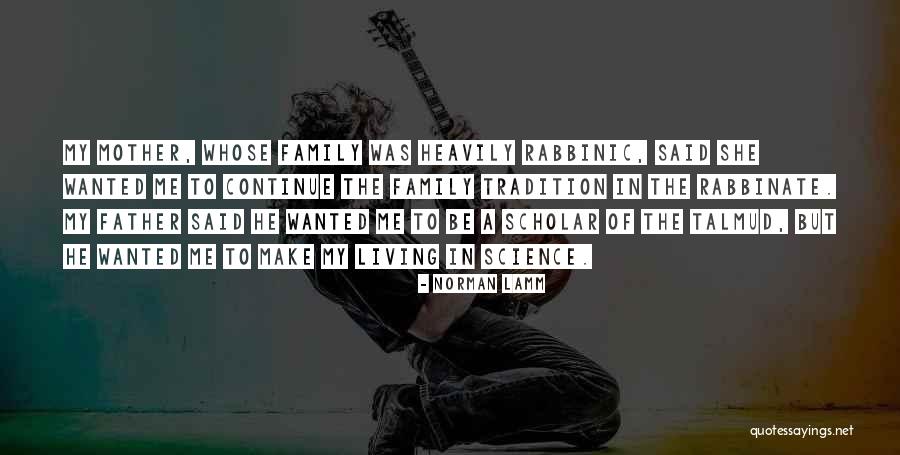
My mother, whose family was heavily rabbinic, said she wanted me to continue the family tradition in the rabbinate. My father said he wanted me to be a scholar of the Talmud, but he wanted me to make my living in science. — Norman Lamm
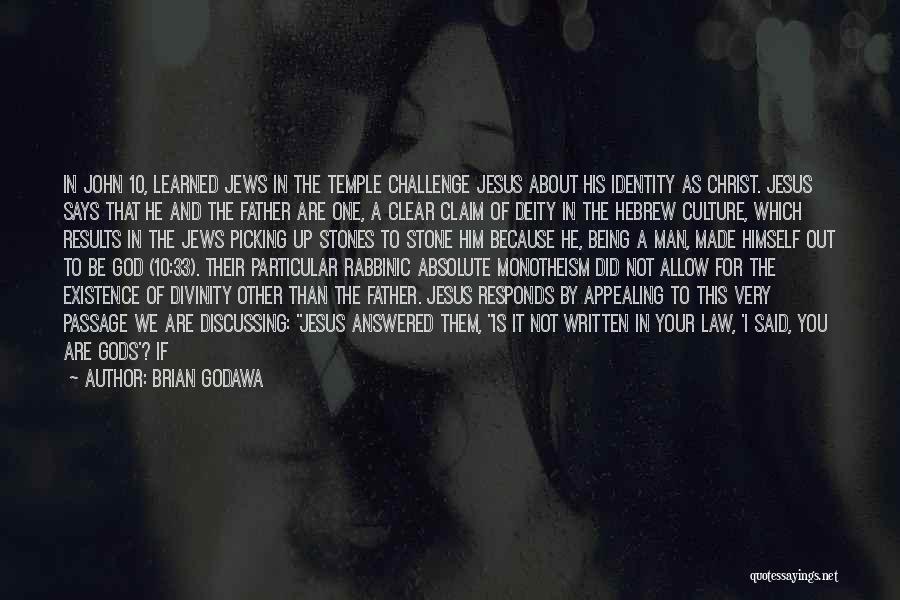
In John 10, learned Jews in the Temple challenge Jesus about his identity as Christ. Jesus says that he and the Father are one, a clear claim of deity in the Hebrew culture, which results in the Jews picking up stones to stone him because he, being a man, made himself out to be God (10:33). Their particular Rabbinic absolute monotheism did not allow for the existence of divinity other than the Father. Jesus responds by appealing to this very passage we are discussing: "Jesus answered them, "Is it not written in your Law, 'I said, you are gods'? If he called them gods to whom the word of God came - and Scripture cannot be broken - do you say of him whom the Father consecrated and sent into the world, 'You are blaspheming,' because I said, 'I am the Son of God'?" (10:34-36). — Brian Godawa





